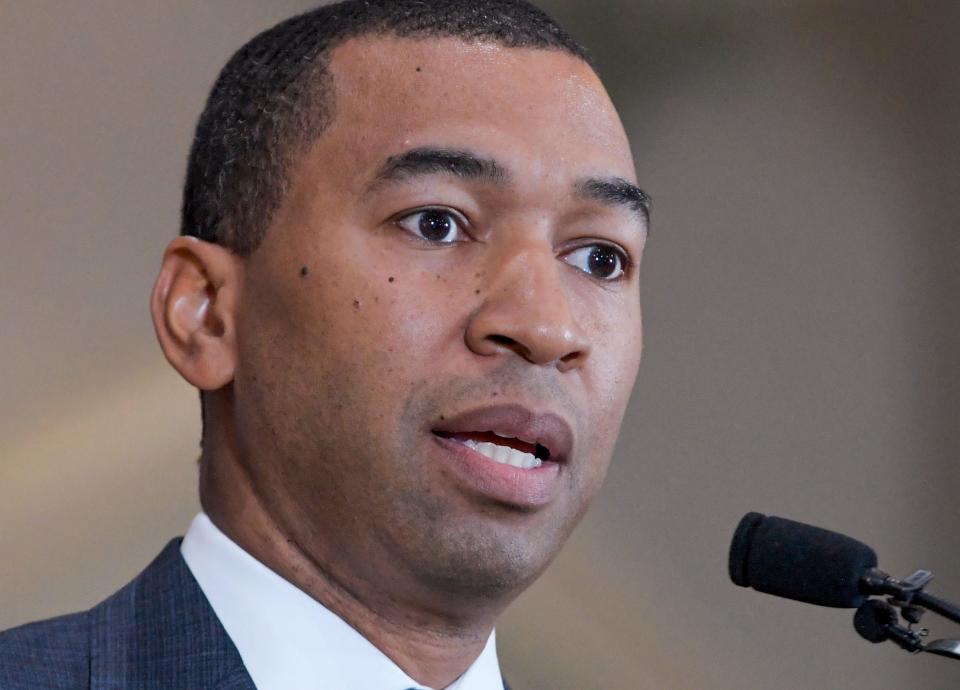Reed recordings: Alabama is a one-party consent state. Here's what that means.
Montgomery Mayor Steven Reed is under fire after audio clips of him speaking about racial dynamics, elections and investment in the city were released on Facebook and YouTube.
In his initial statement on the matter, Reed said his private conversation with a community member in 2020 was recorded “without his knowledge or consent.”
But Alabama is a one-party consent state. Here's what that means.
What does Alabama law say about recording without consent?
Alabama Code § 13A-11-30 stipulates that at least one person involved in a conversation must consent to its recording. No person may record conversations he or she is not a part of unless given verbal or written consent prior to the recording being made.

More:Montgomery mayor wants nonprofit leader arrested for extortion over audio
Thus, recording a private meeting or conversation that you are a part of in Alabama does not break any laws.
Acceptable one-party recordings would include: starting a voice memo when entering a meeting you were invited to attend, recording an interaction with law enforcement and recording a telephone conversation.
Recordings that would cross the legal line include: leaving a recording device in a room or recording any conversation you are not a part of when there is a reasonable expectation of privacy.
What does this mean for Reed?
In Reed’s initial statement on the situation, which he released on Monday evening, Reed said that the conversation was recorded by the community member with whom he was speaking.
If this is the case, the recording was made legally.
On Tuesday, Reed announced plans to pursue legal action against at least one community member who was present for the conversation. Based on information available at this time, the legality of the recording itself is not up for debate.
Hadley Hitson covers the rural South for the Montgomery Advertiser and Report for America. She can be reached at hhitson@gannett.com. To support her work, subscribe to the Advertiser or donate to Report for America.
This article originally appeared on Montgomery Advertiser: Reed recordings: Alabama is a one-party consent state. What it means.

